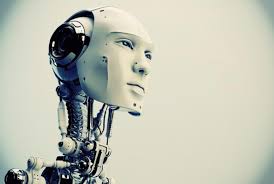
Breaking News
The Criminality Buried In The Epstein Files Is Worse Than Anyone Thought,...
 A Critical Review of Impacts of Greenhouse Gas Emissions on the U.S. Climate
A Critical Review of Impacts of Greenhouse Gas Emissions on the U.S. Climate
 The Great Reject is Upon Us! - #SolutionsWatch
The Great Reject is Upon Us! - #SolutionsWatch
 Google is issuing a call to action:
Google is issuing a call to action:
Top Tech News
 Drone-launching underwater drone hitches a ride on ship and sub hulls
Drone-launching underwater drone hitches a ride on ship and sub hulls
 Humanoid Robots Get "Brains" As Dual-Use Fears Mount
Humanoid Robots Get "Brains" As Dual-Use Fears Mount
 SpaceX Authorized to Increase High Speed Internet Download Speeds 5X Through 2026
SpaceX Authorized to Increase High Speed Internet Download Speeds 5X Through 2026
 Space AI is the Key to the Technological Singularity
Space AI is the Key to the Technological Singularity
 Velocitor X-1 eVTOL could be beating the traffic in just a year
Velocitor X-1 eVTOL could be beating the traffic in just a year
 Starlink smasher? China claims world's best high-powered microwave weapon
Starlink smasher? China claims world's best high-powered microwave weapon
 Wood scraps turn 'useless' desert sand into concrete
Wood scraps turn 'useless' desert sand into concrete
 Let's Do a Detailed Review of Zorin -- Is This Good for Ex-Windows Users?
Let's Do a Detailed Review of Zorin -- Is This Good for Ex-Windows Users?
 The World's First Sodium-Ion Battery EV Is A Winter Range Monster
The World's First Sodium-Ion Battery EV Is A Winter Range Monster
 China's CATL 5C Battery Breakthrough will Make Most Combustion Engine Vehicles OBSOLETE
China's CATL 5C Battery Breakthrough will Make Most Combustion Engine Vehicles OBSOLETE
Robots will soon match humans in creativity, emotional intelligence

An Australian AI expert, Toby Walsh, said during the Festival of Dangerous Ideas in Sydney recently that he thinks AI will learn and possibly match human traits like creativity, emotional intelligence and adaptability in less than 50 years. And Walsh — a Scientia Professor of Artificial Intelligence at UNSW Sydney — predicts robots will be as smart as humans by the year 2062.
But don't worry about them ultimately presenting some sort of threat or something as drastic as potentially wiping out mankind, he adds. "We've been rather mislead by this idea that the robots are going to take over," Walsh told Time Out. "The robots have no desires of their own, they do exactly what we tell them to. I'm much more worried about incompetence than malevolence – that we'll get the machines to do something and we haven't thought carefully about how it's going to interact with our complex world … Healthcare, transport, how we manufacture things, how we educate ourselves, how we go out and play — it's going to touch almost every aspect of our lives."



